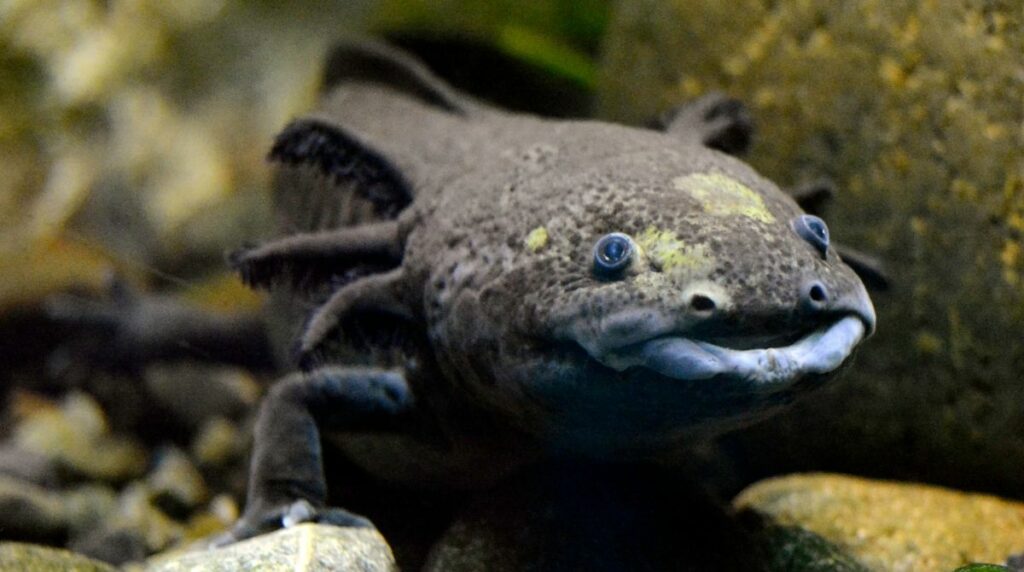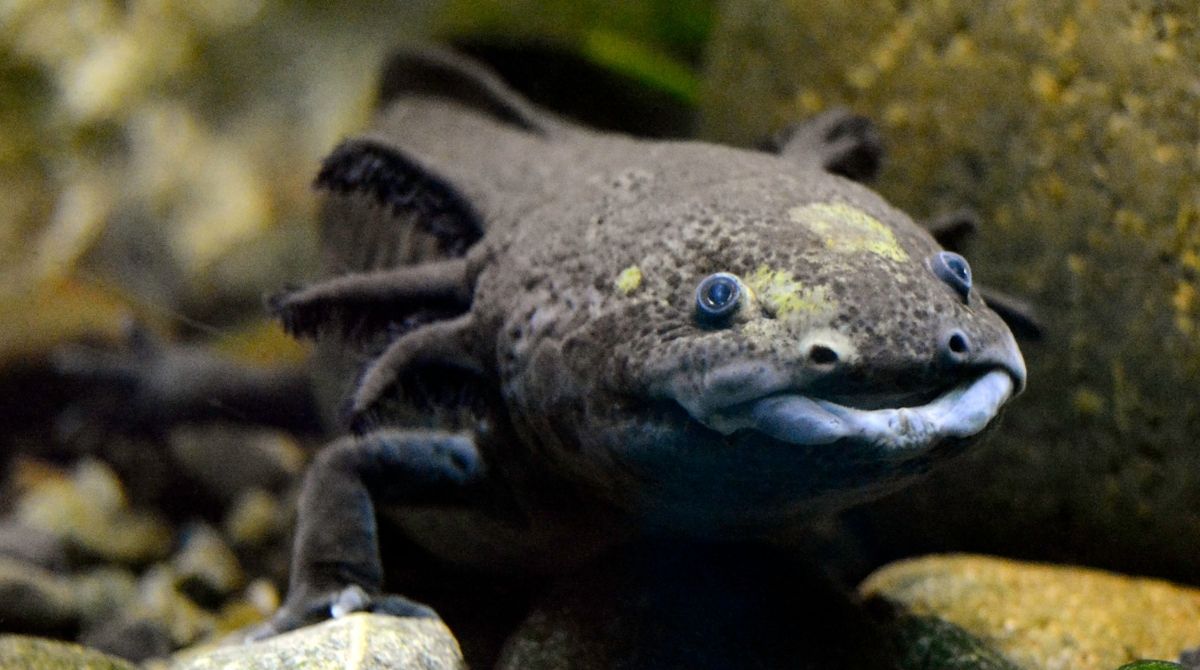Axolotls (Ambystoma mexicanum) are fascinating creatures. They can regenerate lost body parts, which is pretty amazing. But one of the most common questions we get about axolotls is whether or not they bite. The most common Axolotls are Wild-type, Albino, Leucistic, and Melanoid.
There is a lot of confusion about whether or not axolotls bite. People often wonder if they are safe to handle, or if they will get bitten if they try to pet one. In this blog post, we will explore their biting behavior and answer that question once and for all!
Axolotls try to nip at anything in their vicinity. Their teeth aren’t very sharp, so their bites usually don’t cause much pain. However, it is still important to be careful when handling them, just like any other animal!
Table of Contents
What do axolotls look like, and where do they come from?

Axolotls are a type of salamander that is found in Mexico. They are aquatic creatures and they can grow up to 12 inches long. Axolotls have a brown or black body with pink or yellow markings. They are unique animals because they have the ability to regenerate lost body parts, which is why they are often used for scientific research.
Axolotls are also known as Mexican walking fish, but they aren’t actually fish! They’re amphibians which means that they can live in water and on land. Their name comes from the Aztec word “axolotl” which translates to “water dog.”
The Aztecs arrived in the Valley of Mexico in the 13th century and found a huge salamander living near the island where they established their capital, Tenochtitlán. They named the salamander “Axolotl” after “Xolotl” – Aztec god of fire and lightning.
How do axolotls bite and why are they considered a biter species of salamander?
Axolotls are considered a biter species of salamander because they have a tendency to bite everything and anything that moves around in their vicinity. Their teeth aren’t very sharp, so their bites usually don’t cause much pain. However, it is still important to be careful when handling them, just like any other animal!
Axolotls can be a bit aggressive animal, but it is important for you to know how they bite. Axolotl bites aren’t painful, so you don’t need to worry about that too much. However, if your axolotl does manage to get a hold of something with its teeth (like your finger or another body part), you should try to get them off as soon as possible.
Axolotls bite for a variety of reasons, including self-defense and hunting for food. They are not aggressive towards humans, but they will bite if they feel threatened or uncomfortable. Therefore, it is important to be aware of their biting behavior and take the necessary precautions when handling them.
In the wild, axolotls are top predators of their environment. Hence, they tend to bite anything that moves around them. In their natural habitat, axolotls are usually found swimming alone or with other axolotl members of the same species as well as some aquatic plants.
You should never try to force an axolotl out of its tank or hold it against its will because this can cause injury. Proper handling is required of this pet.
Here is a cute video of an Axolotl trying to bite its owner:
Are axolotls dangerous to humans and other animals, or are their bites just a defensive mechanism?
The Axolotl biting behavior is more to do with feeding rather than due to fear.
Axolotls are not considered dangerous to humans or other animals. However, they will bite as that is in their nature. It is important to remember that axolotls are wild animals and should be treated as such. Always use caution when handling them, just like any other animal!
Do axolotls have teeth?
Axolotls have teeth, but they are very small and don’t cause much pain. They mainly use their teeth to catch food or hold onto something while swimming.
Axolotl teeth arent sharp, but it is rare that an axolotl bite causes any serious damage to humans due to the small size of their teeth.
Are axolotl teeth sharp?
No, their teeth aren’t very sharp, so axolotls can’t cut through skin easily but they try to bite everything near them.
Are axolotls aggressive?
Yes, axolotls are aggressive predators and they exhibit this behavior by treating everything even smaller axolotls as food.
They tend to nip at anything nearby thinking that it is food. But do not worry, the bite is not painful for humans.
What should you do if an axolotl bites you, and how can you prevent being bitten in the first place?
If an axolotl bites you, it is important to wash the wound (if any) with soap and water immediately. Then apply pressure to stop any bleeding before seeking medical attention if necessary. It is also recommended that you call your veterinarian right away to determine what might have caused the bite. If possible, try not to move too much because this can worsen.
The best way to prevent being bitten is by avoiding handling them in the first place. Axolotls are not aggressive and they don’t usually bite unless provoked or threatened, so you need to keep your distance when interacting with these animals!
If you get bit despite taking precautions, it’s important to clean the wound and seek medical attention if necessary. Axolotls bites generally do not cause worrying injuries but better to be safe than sorry!
Axolotls are interesting creatures, but they can be unpredictable at times. Therefore, it is always important to remember that they are wild animals and should be treated as such
Conclusion
Axolotls can be unpredictable at times and their biting behavior should not be taken lightly. When axolotls bite, it’s not because they are inherently mean or aggressive towards their owners (although some might say otherwise). Instead, it has more to do with how you treat your pet in general – if the animal feels threatened or stressed out by something like loud noises outside its tank, then it might lash out with a bite.


